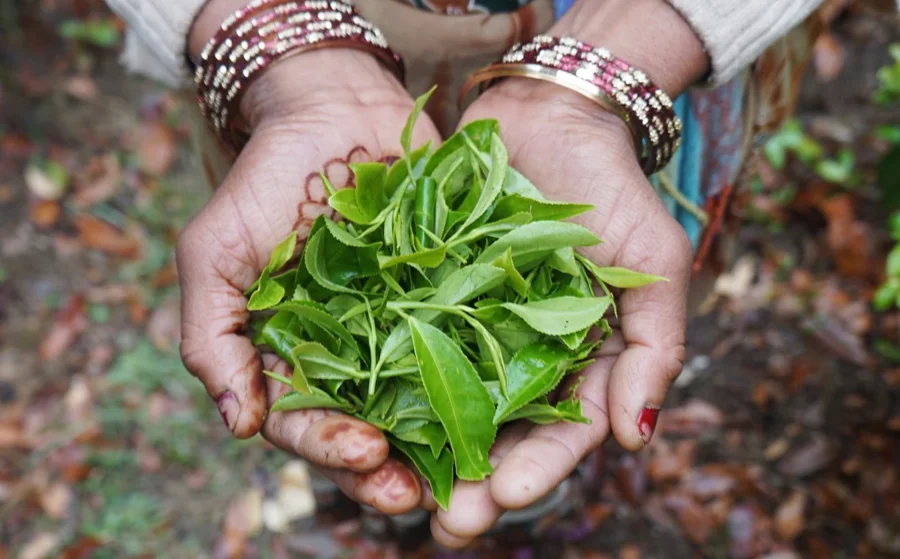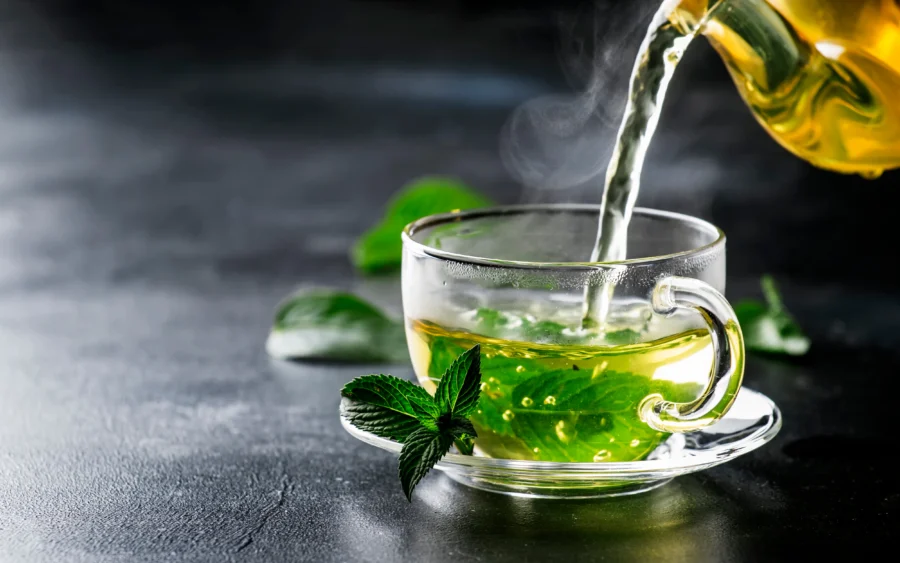Yerba Mate and Green Tea: A Health Comparison
If you’re looking for a delicious and nutritious way to perk up your day without all the sugar from coffee, you may have noticed two drinks that keep popping up on the scene – yerba mate and green tea. But what, exactly, are the differences between these two beverages when it comes to nutrition and health? Let’s dive in and find out!
1. The Health Benefits of Yerba Mate and Green Tea
Yerba mate and green tea are both popular natural beverages that are known for their various health benefits. While both drinks contain antioxidants, they do have some distinct differences between them. Here are some of the health benefits each provides and how they compare to each other.
- Caffeine: Both yerba mate and green tea contain similar levels of caffeine, however, yerba mate contains a unique stimulant called mateine, which is similar to caffeine but gentler on the body.
- Polyphenols: Yerba mate has more polyphenols than green tea, making it a better choice for antioxidant and immune boosting benefits.
- Calories: When it comes to calorie content, yerba mate packs a lot more punch than green tea. It has approximately 70-80 calories per cup, while green tea has virtually no caloric value.
- Nutrients: Both yerba mate and green tea contain helpful nutrients like B vitamins, vitamin C, zinc and iron. Yerba mate contains more of these nutrients than green tea, providing an additional boost to the immune system.
Overall, there are many similarities between yerba mate and green tea in terms of health benefits, however, they do have some distinct differences. Yerba mate may be the better choice if you are looking for added immune boosting benefits, while green tea can be beneficial if you are looking for a lower calorie drink.
2. Calorie and Caffeine Comparison
When it comes to calories and caffeine, there are a few distinct differences between yerba mate and green tea. Here’s a comparison of the two drinks:
- Yerba Mate averages about 25-35 mg of caffeine per 8 oz cup of tea. Green tea varies, but averages about 30-50 mg per cup.
- Yerba Mate contains no calories, while green tea typically contains about 3-4 calories per cup.
Conclusion: Overall, yerba mate has slightly more caffeine than green tea, but fewer calories. So, if you’re looking for a healthier option, yerba mate may be ideal. However, if you’re looking for more caffeine, green tea may be the way to go.
3. Comparing Nutrient Content
The nutrient content of yerba mate and green tea differs quite significantly. Both beverages share similar amounts of calories; however, yerba mate is richer in essential vitamins and minerals. Here’s a breakdown of their nutritional value:
- Yerba Mate: Vitamin A, vitamin C, calcium, iron, magnesium, potassium, and zinc.
- Green Tea: Vitamin A, vitamin C, and iron.
Yerba mate also provides a boost of additional protein and antioxidants such as quercetin and kaempferol. Green tea has higher levels of catechins, a type of antioxidant found in tea leaves. This may provide more protection against the formation of harmful free radicals and in turn, reduce your risk of disease.
Certain types of yerba mate are also known to contain compounds that may help to regulate blood sugar levels. This can help to reduce the risk of developing type 2 diabetes. Both beverages are known to contain caffeine, but yerba mate contains significantly more with an average of 85mg per cup, whereas green tea contains an average of 35mg per cup.

4. Antioxidant Benefits
Yerba mate and green tea are both known to contain high amounts of antioxidants, which are known to help shield the body from damage caused by toxins and diseases. Let’s take a look at what antioxidants each of these drinks offer:
- Yerba mate contains powerful antioxidants caffeic acid, chlorogenic acid, and quercetin. These compounds provide the body with anti-inflammatory and anti-viral benefits.
- Green tea is higher in antioxidants than Yerba mate. It contains the powerful polyphenol antioxidants catechin and epigallocatechin gallate (EGCG), which is known to shield the body from oxidative damage.
The type of antioxidants found in Yerba Mate and Green tea offer unique benefits. Caffeic acid and chlorogenic acid, which are found in Yerba Mate, have been linked to improved health benefits such as gut health and diabetes management.
EGCG, found primarily in Green tea, provides the body with antioxidant protection against UV radiation and improve cognitive function. Additionally, studies have indicated that drinking Green tea may actually help improve cardiovascular health, boost the immune system, and reduce stress.
5. Concluding Which is Better for Health
When looking at the two beverages side by side, deciding which one is better for health becomes a bit more complicated, as their specific benefits differ. Here is a quick overview of the health benefits of each choice:
- Yerba mate:
- Contains 24 vitamins and minerals
- High in antioxidants
- May aid in weight loss
- Green tea:
- Good source of amino acids
- High in polyphenols
- Associated with a decreased risk of certain cancers
It is ultimately up to each individual to decide which beverage better suits their needs. Both green tea and yerba mate are better for health than sodas and processed juices, and everyone should be sure to get enough fluids throughout the day.

Conclusion
Ultimately, it is up to you to decide which drink is best for your own personal health needs. Both green tea and yerba mate offer many beneficial health properties, including antioxidants and potential protection against chronic diseases. However, as with all things, it is best to practice moderation and not rely too heavily on any single food or beverage for optimal health.
